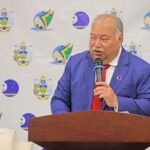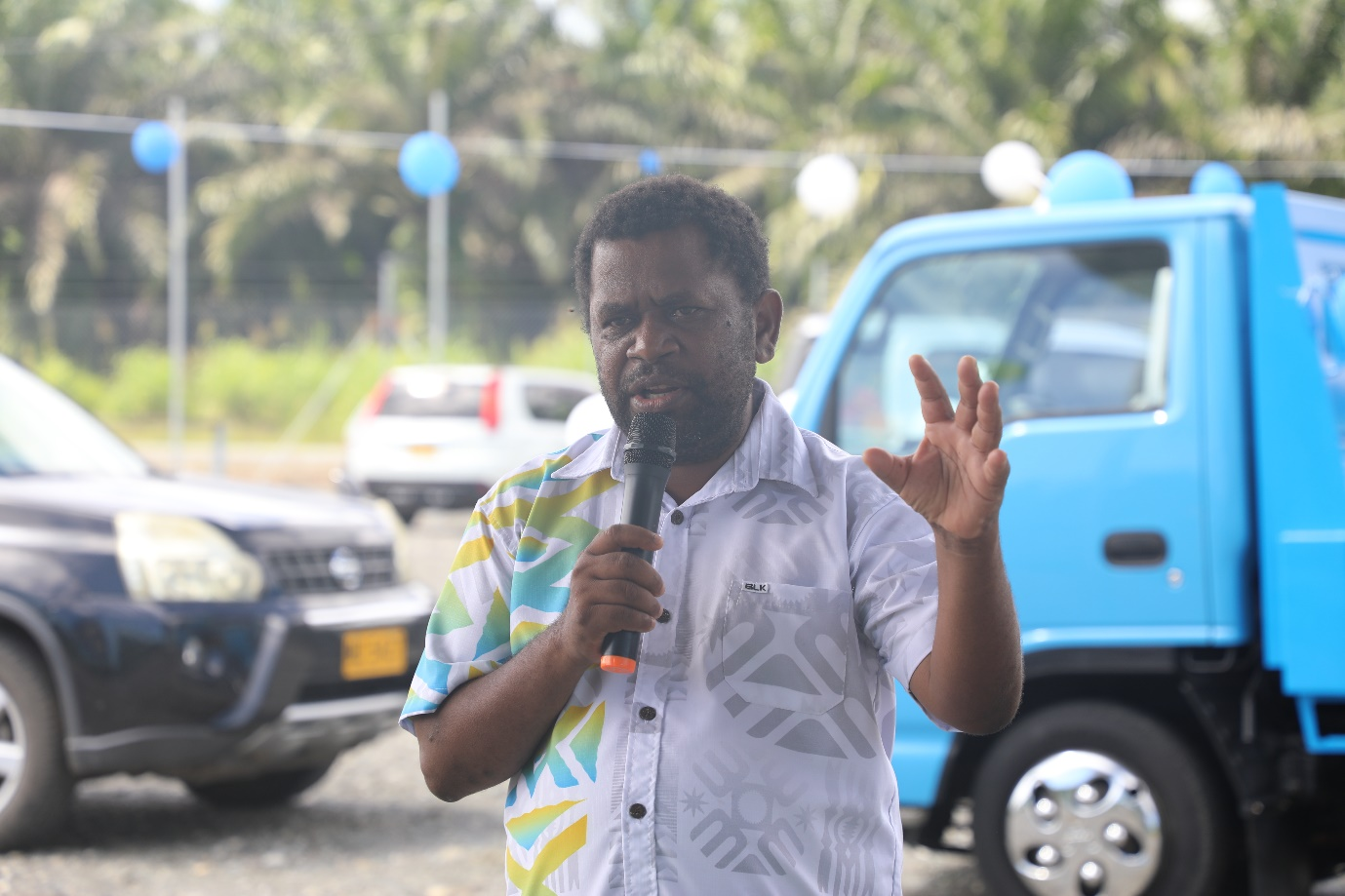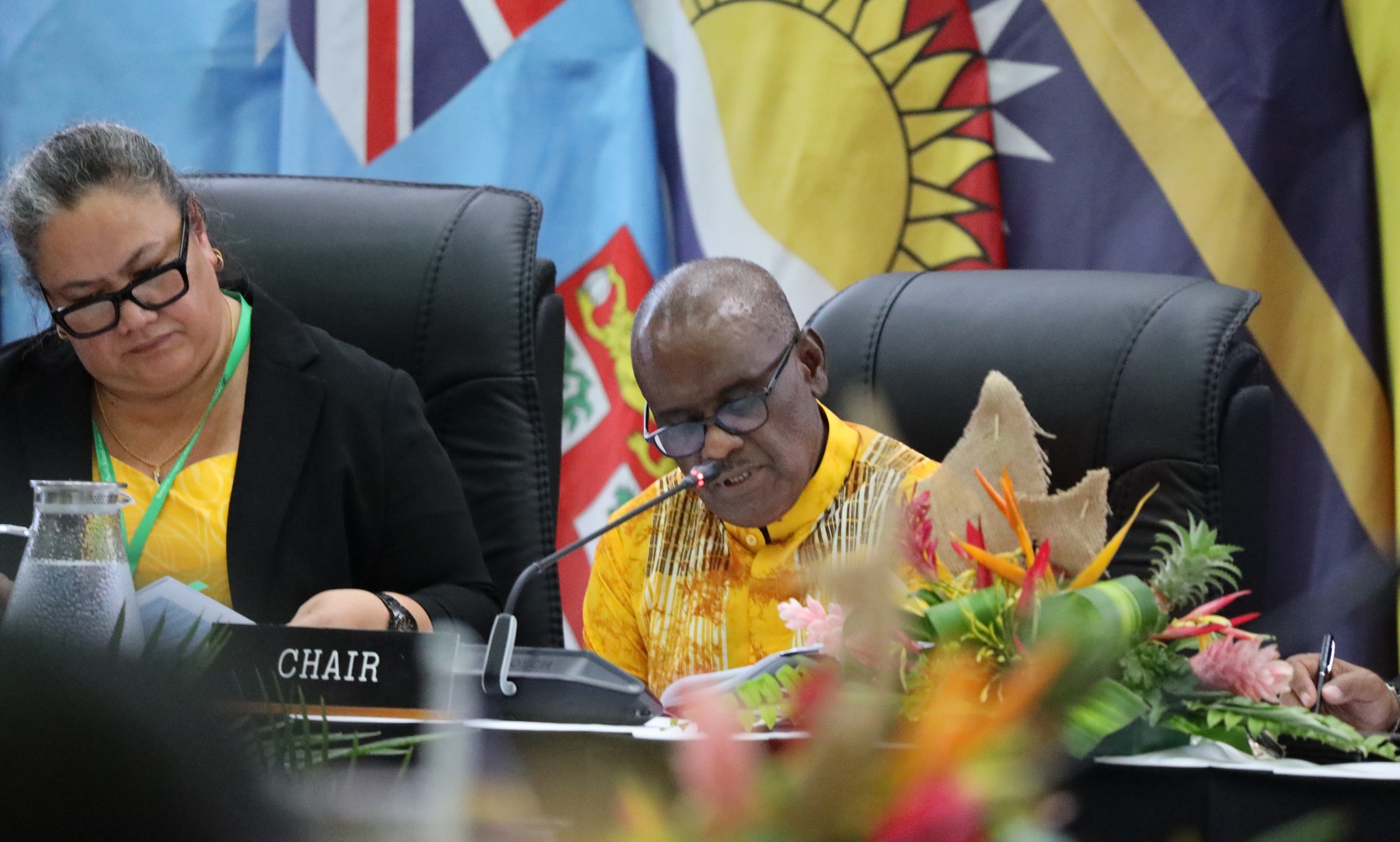LEADERS from across the Pacific convened today at the Pacific Islands Forum Secretariat for the 2025 Forum Trade Ministers Meeting, chaired by Honourable Kapelieli Lanumata, with a clear message: regional cooperation is vital to overcoming mounting global and local economic pressures.
In his opening remarks, Lanumata highlighted a worrying slowdown in global trade growth, which fell sharply from 2.7% in 2022 to just 0.8% last year, according to the World Trade Organization. He cited geopolitical tensions, conflicts in Ukraine and the Middle East, and rising shipping and commodity costs as significant strains on Pacific economies that have disrupted supply chains and intensified inflation.
“This turbulence lands squarely at our doorsteps, magnifying inflation and testing the resilience of Forum Island Countries,” Lanumata said.
He also drew attention to pressing regional issues: climate disasters costing over USD 1.2 billion in 2023, the ongoing impact of non-communicable diseases, high unemployment rates exceeding 15% in some nations, and regional debt averaging over 45% of GDP.
Despite these challenges, Lanumata urged ministers to view these obstacles as opportunities for strategic economic reform and investment in trade. Quoting the Asian Development Bank’s recent Pacific Economic Monitor, he stressed that with a modest projected growth of 3.3% for 2025, the Pacific must act swiftly to boost competitiveness and resilience.
The meeting was framed not as a routine gathering but as a critical platform for coordinated policy action that aligns trade with broader development goals. Lanumata emphasized the importance of embedding trade initiatives into national recovery plans to foster growth that is inclusive, climate-resilient, and driven by the private sector.
Progress under the Pacific Aid-for-Trade Strategy 2020–2025 was praised, highlighting achievements in trade policy reforms, e-commerce growth, and support for micro, small, and medium enterprises (MSMEs). “These successes demonstrate the power of regionalism combined with focused, action-oriented implementation,” Lanumata said.
Labour mobility also featured prominently. The Chair welcomed advancements on the Pacific Labour Mobility Principles, noting their potential to transform communities through overseas employment while underscoring the need to protect vulnerable workers and enhance reintegration support.
Looking ahead, Lanumata reaffirmed the Pacific Roadmap for Economic Development as essential guidance for expanding the region’s economic agenda. He called for its expansion to tackle cost-of-living pressures, employment generation, and investment—supported by improved data systems, value chain enhancement, and digital technologies to lower trade transaction costs.
On the international stage, Lanumata urged a united Pacific voice in advocating for reform at the World Trade Organization, including fairer trade rules, fisheries subsidies regulation, and digital trade governance reforms. He warned that retreating from multilateralism risks “erecting walls where bridges are needed,” undermining collective interests. “We must be bold, values-driven, and relentlessly Pacific in our pursuit of prosperity,” he said.
As the meeting got underway, Lanumata encouraged ministers to pursue tangible outcomes through partnerships, pilot projects, and policy reforms that deliver real benefits for Pacific communities. “With our shared vision and leadership, we can build a resilient and prosperous Blue Pacific Continent,” he concluded.
The 2025 Forum Trade Ministers Meeting is set to chart a decisive path for the Pacific’s economic future, cementing the region’s commitment to sustainable growth through regional unity and practical action.













